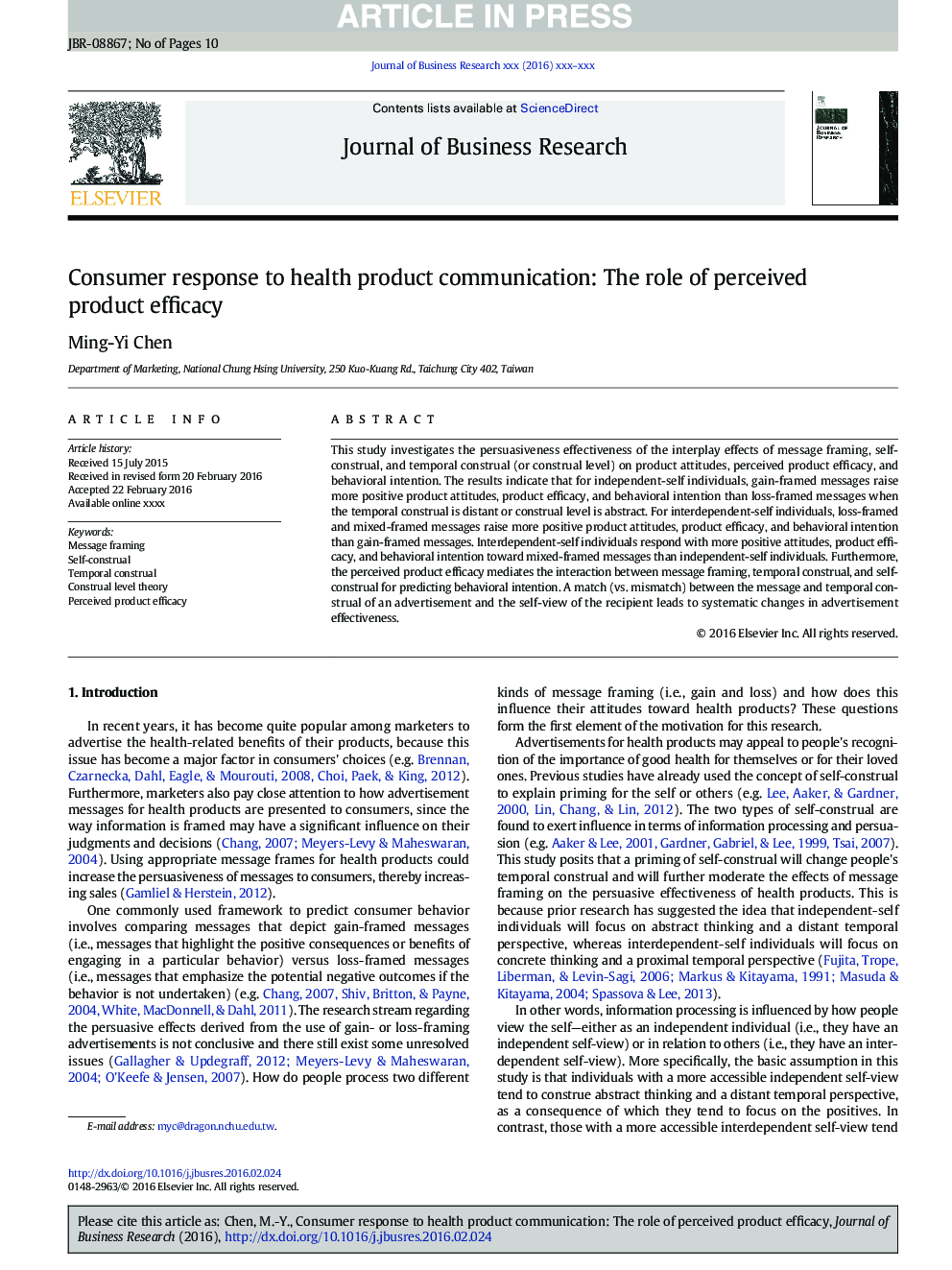| Article ID | Journal | Published Year | Pages | File Type |
|---|---|---|---|---|
| 10492494 | Journal of Business Research | 2016 | 10 Pages |
Abstract
This study investigates the persuasiveness effectiveness of the interplay effects of message framing, self-construal, and temporal construal (or construal level) on product attitudes, perceived product efficacy, and behavioral intention. The results indicate that for independent-self individuals, gain-framed messages raise more positive product attitudes, product efficacy, and behavioral intention than loss-framed messages when the temporal construal is distant or construal level is abstract. For interdependent-self individuals, loss-framed and mixed-framed messages raise more positive product attitudes, product efficacy, and behavioral intention than gain-framed messages. Interdependent-self individuals respond with more positive attitudes, product efficacy, and behavioral intention toward mixed-framed messages than independent-self individuals. Furthermore, the perceived product efficacy mediates the interaction between message framing, temporal construal, and self-construal for predicting behavioral intention. A match (vs. mismatch) between the message and temporal construal of an advertisement and the self-view of the recipient leads to systematic changes in advertisement effectiveness.
Related Topics
Social Sciences and Humanities
Business, Management and Accounting
Business and International Management
Authors
Ming-Yi Chen,
